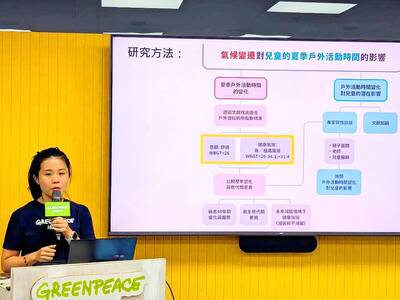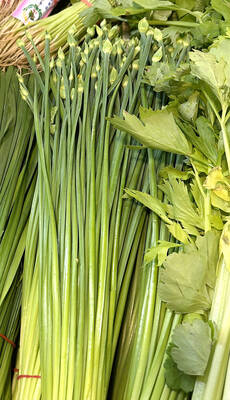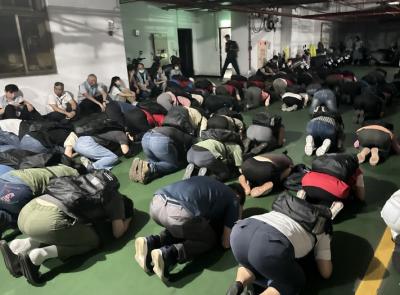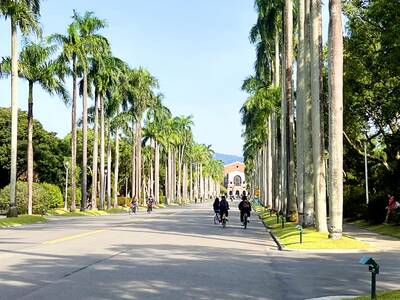Starting on Jan. 1, Taipei is to introduce a monthly pass for unlimited rides on its MRT railway system, Taipei Mayor Ko Wen-je (柯文哲) said yesterday.
The initiative is aimed at encouraging greater use of public transportation and cutting costs for lower-income workers who have to commute from suburban areas to the city’s center, he said.
“It is mostly poor people who live in the suburban areas,” Ko said. “It does not make sense to punish them with higher transportation costs.”
He said residents of areas such as New Taipei City’s Sinjhuang (新莊) and Tamsui (淡水) districts spend a significant amount of time commuting to Taipei, and “should not have to pay a lot of money to commute.”
In a three-month pilot program, the passes are to be sold at NT$2,500 each and would be valid for unlimited rides on the MRT for one month, Ko said.
After three months, the city is to review the program and decide whether to expand it to include public bus rides in New Taipei City and Keelung, Ko said.
He said one of the goals of introducing the unlimited monthly pass is to reduce pollution by encouraging motorcyclists to use the MRT instead.
“We will see how it works when the initial results are in,” Ko said in response to questions on whether the NT$2,500 price is low enough to convince commuters to switch from low-cost scooters.
Any type of reform has to be assessed in stages, Ko said, promising that MRT fares would not be increased during his term as mayor.
Ko indicated that he might consider using the revenue from parking fees to help fund the city’s public transportation system, which he said is being operated on the tenets of sharing, use of “green” energy and use of Internet technology.

The government should improve children’s outdoor spaces and accelerate carbon reduction programs, as the risk of heat-related injury due to high summer temperatures rises each year, Greenpeace told a news conference yesterday. Greenpeace examined summer temperatures in Taipei, New Taipei City, Taoyuan, Hsinchu City, Taichung, Tainan and Kaohsiung to determine the effects of high temperatures and climate change on children’s outdoor activities, citing data garnered by China Medical University, which defines a wet-bulb globe temperature (WBGT) of 29°C or higher as posing the risk of heat-related injury. According to the Central Weather Administration, WBGT, commonly referred to as the heat index, estimates

The Taipei Department of Health’s latest inspection of fresh fruit and vegetables sold in local markets revealed a 25 percent failure rate, with most contraventions involving excessive pesticide residues, while two durians were also found to contain heavy metal cadmium at levels exceeding safety limits. Health Food and Drug Division Director Lin Kuan-chen (林冠蓁) yesterday said the agency routinely conducts inspections of fresh produce sold at traditional markets, supermarkets, hypermarkets, retail outlets and restaurants, testing for pesticide residues and other harmful substances. In its most recent inspection, conducted in May, the department randomly collected 52 samples from various locations, with testing showing

Taipei and other northern cities are to host air-raid drills from 1:30pm to 2pm tomorrow as part of urban resilience drills held alongside the Han Kuang exercises, Taiwan’s largest annual military exercises. Taipei, New Taipei City, Keelung, Taoyuan, Yilan County, Hsinchu City and Hsinchu County are to hold the annual Wanan air defense exercise tomorrow, following similar drills held in central and southern Taiwan yesterday and today respectively. The Taipei Mass Rapid Transit (MRT) and Maokong Gondola are to run as usual, although stations and passenger parking lots would have an “entry only, no exit” policy once air raid sirens sound, Taipei

Taipei placed 14th in the Quacquarelli Symonds (QS) Best Student Cities 2026 list, its highest ever, according to results released yesterday. With an overall score of 89.1, the city climbed 12 places from the previous year, surpassing its previous best ranking of 17th in 2019. Taipei is “one of Asia’s leading higher-education hubs,” with strong employer activity scores and students “enjoying their experience of the city and often keen to stay after graduation,” a QS staff writer said. In addition to Taipei, Hsinchu (71st), Tainan (92nd), Taichung (113th) and Taoyuan (130th) also made QS’ list of the top 150 student cities. Hsinchu showed the